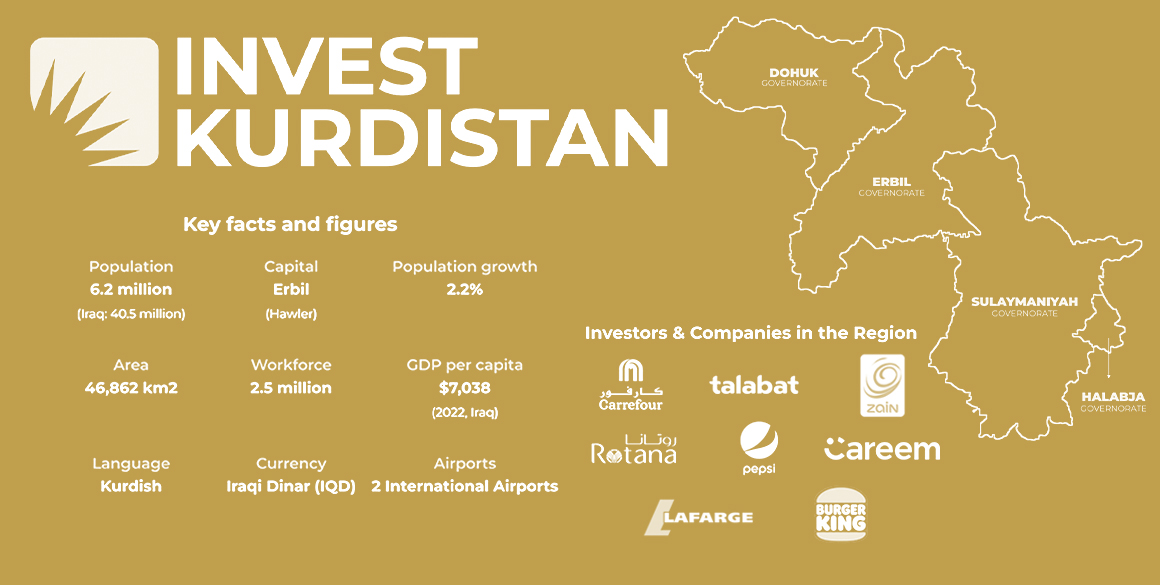Located in the heart of the Middle East, the Kurdistan Region is strategically situated at the crossroads of Europe, the Middle East and Asia.
Kurdistan is a semi-autonomous region in northern Iraq governed by the Kurdistan Regional Government (KRG) and has its own legislative body. The region borders Iran to the east, Turkey to the north, and Syria to the west.
Why invest in Kurdistan?
Kurdistan Region is rich in natural resources, including oil and natural gas, and has fertile land and a climate suitable for agriculture. The region’s economy is growing, providing opportunities for investors to participate in the region’s economic development and benefit from its expanding market. In addition, there are other factors that make the Kurdistan Region an excellent and attractive investment destination, including:
- Political and economic stability
The Kurdistan Region of Iraq is a stable and attractive destination for investment, particularly for foreign investors considering investing in Iraq. Its security and stability make it an ideal location for both local and foreign investors to establish and grow their businesses. - Favorable investment legislation
The Investment Law of the Kurdistan Region, provides investors with a number of incentives, including land allocation, tax exemptions, and full repatriation of profits and capital. These favorable investment conditions make it easier for investors to do business in the region. - Skilled and educated workforce
The Kurdistan Region boasts a skilled and educated workforce, providing a ready pool of talent for investors to tap into as they establish operations in the region. - Strategic location
The Kurdistan Region is strategically located in the heart of the Middle East and at the crossroads of Europe, Asia and the MENA region. This makes it an ideal gateway for investors seeking access to these markets. - Diverse investment sectors
The region offers a wide range of sectors open to investment. This diversity allows investors to choose the sector that best aligns with their interests and expertise.
Security in the Kurdistan Region
The Kurdistan Region is known for its security and safety, having largely avoided security incidents over the past two decades. This security has given investors and business owners the confidence to initiate investment projects, allowing businesses to operate without interruption or concern for the safety of their employees. Both politically and economically, the Kurdistan Region has experienced relative stability in recent years. Despite some challenges and even during times of conflict in Iraq, the Kurdistan Regional Government (KRG) has managed to maintain a relatively stable political environment and a conducive atmosphere for international companies and organizations to operate in the region.
Business Climate in the Kurdistan Region
The Kurdistan Region’s abundance of natural resources and its open market have contributed significantly to the growth of its economy and the expansion of its private sector. The establishment of two international airports in Erbil and Sulaymaniyah has facilitated the region’s integration into the global business market and increased its accessibility to the rest of the world. The region has become a thriving trade hub, attracting local and international companies to establish and expand operations in the region due to its favorable business environment and strategic location at the intersection of Iraq, Iran, Turkey and Syria.
